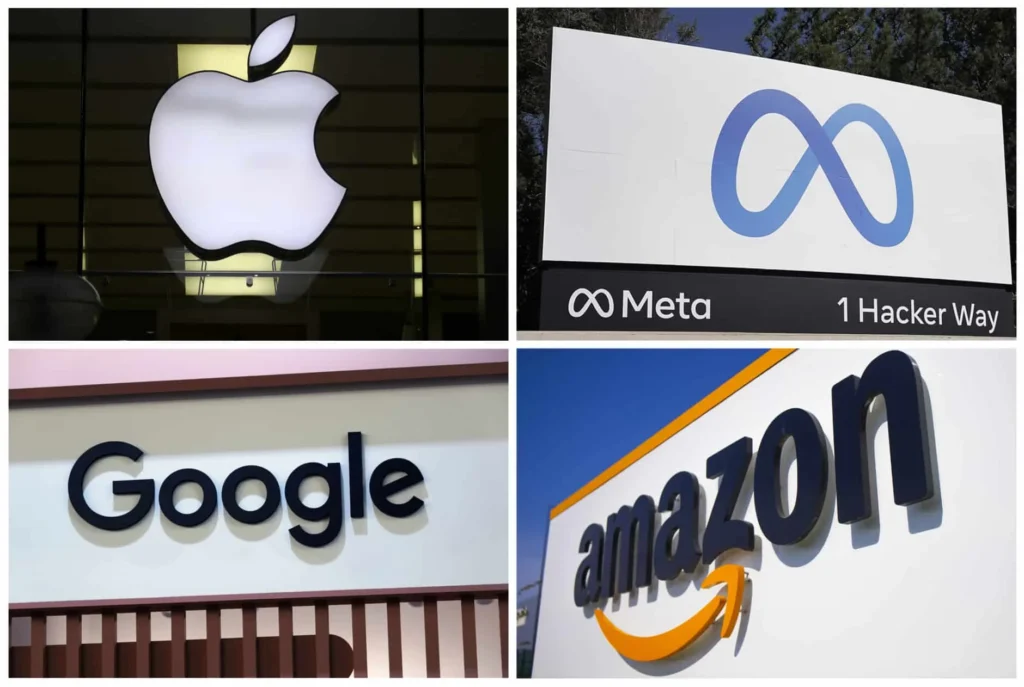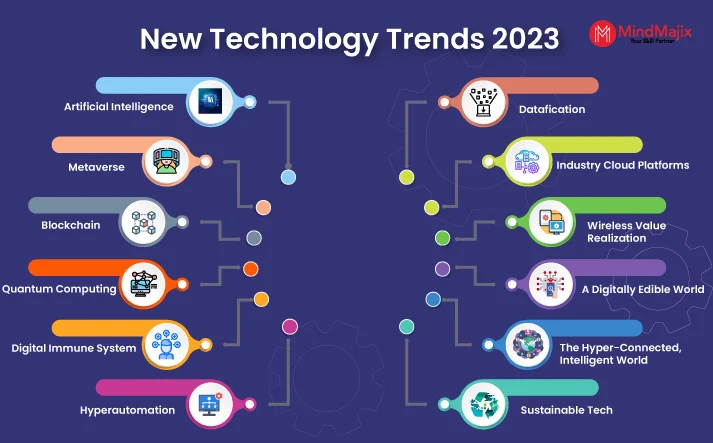Tech giants such as Facebook, Google, and Amazon are facing increased scrutiny from governments around the world as their influence continues to grow. The new regulations aimed at big tech companies are a response to concerns over data privacy, antitrust issues, and the spread of misinformation. Governments are taking steps to hold these companies accountable and ensure fair competition in the digital market. This has led to a global conversation about the power and responsibility of tech giants in shaping our online experiences and society as a whole.
As governments grapple with the influence of tech giants, they are exploring ways to address issues such as user data protection, market competition, and content moderation. The regulations being considered include measures to prevent monopolistic behavior, enhance transparency in data collection and usage, and combat the spread of harmful content. These efforts reflect a growing awareness of the need to balance innovation and consumer protection in the digital age. The intersection of technology, regulation, and public interest is at the forefront of discussions as policymakers seek to ensure a fair and safe online environment for all.
Regulation of Big Tech: A Global Trend
Governments around the world are increasingly taking action to regulate the influence of big tech companies. From the European Union to the United States, there is a growing consensus that the power of tech giants such as Facebook, Google, and Amazon needs to be reined in to protect competition and consumer rights. This trend is driven by concerns over data privacy, market dominance, and the potential for these companies to stifle innovation.
In the European Union, the Digital Markets Act and the Digital Services Act are key pieces of legislation aimed at regulating big tech. These laws seek to impose restrictions on tech companies’ behavior, such as preventing them from favoring their own services over competitors and requiring them to share data with rivals. In the United States, there are ongoing antitrust investigations and lawsuits targeting the market power of big tech firms, with calls for legislative action to address their dominance.
Data Privacy and Protection Laws
Data privacy and protection have become major concerns in the digital age, and governments are enacting laws to regulate how tech companies collect, store, and use personal data. The European Union’s General Data Protection Regulation (GDPR) is a landmark legislation that sets a high standard for data privacy and imposes hefty fines on companies that violate its provisions. In the United States, states like California have implemented their own data privacy laws, such as the California Consumer Privacy Act (CCPA), which gives consumers more control over their personal information.
Other countries, such as Brazil and India, have also introduced comprehensive data protection laws to safeguard the rights of their citizens. These laws often require tech companies to obtain explicit consent for data collection, provide mechanisms for individuals to access and delete their data, and establish strict security measures to protect sensitive information. As concerns about data privacy continue to grow, more governments are likely to follow suit with stringent regulations.
Antitrust and Competition Measures
Concerns about the market power and anti-competitive practices of big tech companies have led to increased scrutiny and enforcement actions by competition authorities. Antitrust investigations have focused on issues such as monopolistic behavior, unfair business practices, and the impact of mergers and acquisitions on competition. In some cases, tech giants have been fined billions of dollars for violating antitrust laws.
To address these concerns, governments are considering new regulations to promote competition in the digital marketplace. This includes proposals to limit the ability of tech companies to favor their own products and services, require interoperability with other platforms, and facilitate data portability to reduce barriers to entry for new competitors. By fostering a more level playing field, these measures aim to prevent the abuse of market power by big tech firms.
Misinformation and Content Moderation
The spread of misinformation and harmful content on online platforms has prompted calls for regulations to hold tech companies accountable for the content they host. Governments are exploring ways to address issues such as fake news, hate speech, and harmful disinformation, especially in the context of public health and political discourse. This has led to debates about the responsibility of tech companies to moderate content and the potential role of regulations in enforcing better practices.
Some countries have enacted laws to combat misinformation, such as Germany’s Network Enforcement Act (NetzDG), which requires social media platforms to remove illegal content within a specified timeframe or face significant fines. Other proposals include requiring transparency in content moderation practices, establishing clear guidelines for what constitutes harmful content, and empowering users with more control over their online experiences. As governments grapple with the complexities of content moderation, new regulations are likely to emerge to address these challenges.
Taxation of Digital Services
The rapid rise of digital services has raised questions about how to tax the revenue generated by tech companies operating across borders. Traditional tax systems have struggled to keep pace with the digital economy, leading to concerns about tax avoidance and the erosion of tax bases. In response, governments are exploring ways to reform tax rules to ensure that tech companies pay their fair share of taxes.
The Organization for Economic Cooperation and Development (OECD) has been leading efforts to develop a global framework for taxing digital services, with proposals to allocate taxing rights based on where users are located and to establish a minimum level of taxation for tech giants. Some countries, such as France and the United Kingdom, have also implemented digital services taxes to capture revenue from online advertising and marketplace activities. As the debate over digital taxation continues, new regulations are likely to reshape the taxation of tech companies in the coming years.
Cybersecurity and Data Breach Notification
The increasing frequency and severity of cyber attacks have underscored the need for regulations to enhance cybersecurity measures and protect sensitive data. Governments are enacting laws to require companies, including tech firms, to implement robust cybersecurity practices, disclose data breaches in a timely manner, and safeguard critical infrastructure from digital threats. These regulations aim to prevent data breaches, mitigate the impact of cyber attacks, and strengthen overall resilience in the digital ecosystem.
For example, the European Union’s Network and Information Security Directive (NIS Directive) establishes security and reporting obligations for operators of essential services and digital service providers. In the United States, certain states have introduced data breach notification laws that mandate companies to notify individuals affected by a breach and, in some cases, regulatory authorities. As cyber threats continue to evolve, governments are likely to introduce further regulations to address emerging challenges in cybersecurity and data protection.
Ethical Use of Artificial Intelligence
The increasing use of artificial intelligence (AI) technologies by big tech companies has raised ethical concerns about the potential impact on individuals, society, and the workforce. Governments are considering regulations to ensure that AI is developed and deployed in a responsible and ethical manner, addressing issues such as bias, transparency, accountability, and the impact on employment. These regulations seek to balance the benefits of AI innovation with the need to mitigate potential risks and ensure that AI systems are aligned with human values.
Some countries have proposed guidelines or frameworks for the ethical use of AI, while others are exploring the possibility of enacting laws to govern AI applications in specific sectors, such as healthcare and finance. The European Union is also considering a regulatory framework for AI, which may include requirements for high-risk AI systems, conformity assessments, and oversight mechanisms. As AI technologies continue to advance, governments are likely to introduce regulations to promote the ethical development and deployment of AI in the digital landscape.
Transparency and Accountability in Algorithmic Decision-Making
As big tech companies increasingly rely on algorithms to make decisions that impact individuals and society, there is growing demand for regulations to ensure transparency and accountability in algorithmic decision-making. Concerns about algorithmic bias, discrimination, and the lack of oversight have spurred calls for regulations to address these issues and protect the rights of individuals affected by automated decisions.
Regulations may require tech companies to disclose information about the algorithms they use, conduct impact assessments to evaluate potential biases, and establish mechanisms for individuals to challenge automated decisions. This could involve laws that mandate transparency in algorithmic decision-making, the establishment of independent oversight bodies, and the implementation of safeguards to prevent discriminatory outcomes. As the use of algorithms becomes more pervasive, governments are likely to introduce regulations to promote greater transparency and accountability in this critical aspect of big tech’s influence.
| Country | Regulation Approach |
|---|---|
| United States | Antitrust investigations and proposed new laws to address market dominance |
| European Union | Stricter data privacy regulations and proposed Digital Markets Act to control monopolistic practices |
| China | Regulations to curb monopolistic behavior and protect consumer rights |
| Australia | Proposed laws to force tech companies to pay for news content and address bargaining power imbalance |




